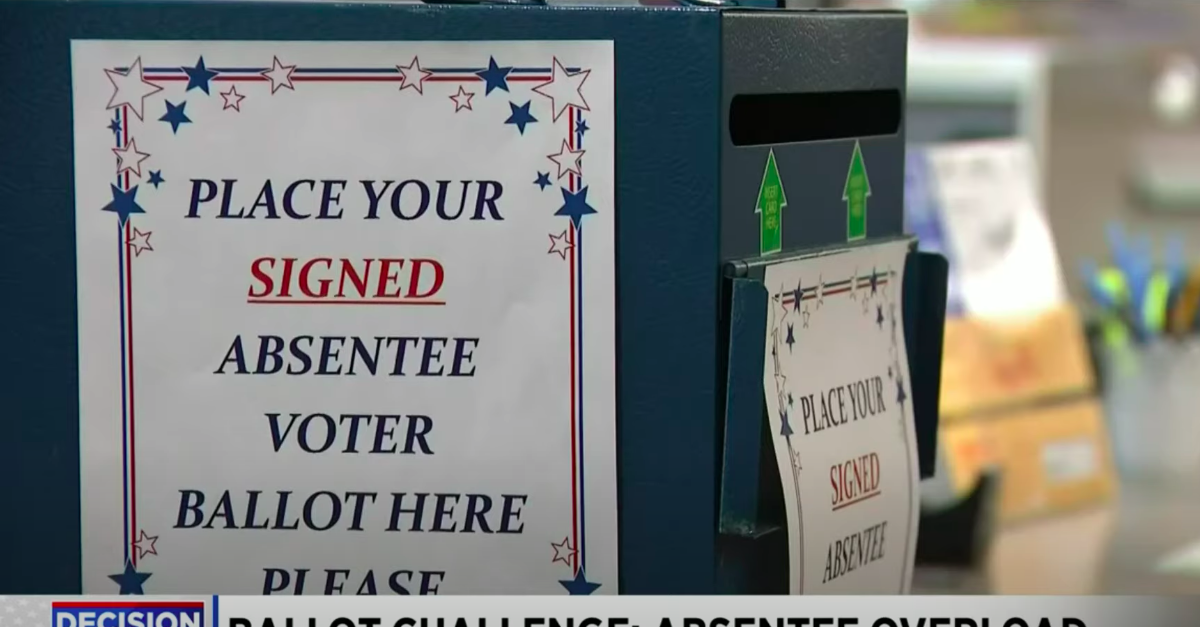
The Pennsylvania Supreme Court on Friday sided with the state’s top election official, unanimously ruling that counties in the battleground state cannot reject mail-in ballots based on a perceived discrepancy in the signature on the ballot and the corresponding signature on the voter’s registration form.
“We conclude that the Election Code does not authorize or require county election boards to reject absentee or mail-in ballots during the canvassing process based on an analysis of a voter’s signature on the ‘declaration’ contained on the official ballot return envelope for the absentee or mail-in ballot,” Justice Debra Todd, a Democrat, wrote in a 30-page opinion.
“We, therefore, grant [Secretary of the Commonwealth Kathy Boockvar’s] petition for declarative relief, and direct the county boards of elections not to reject absentee or mail-in ballots for counting, computing, and tallying based on signature comparisons conducted by county election officials or employees, or as the result of third-party challenges based on such comparisons.”
Pennsylvania’s Election Code requires a county board to determine if a ballot declaration is “sufficient” by making sure it is filled out, dated, and signed. After performing a thorough analysis of the relevant laws, the court concluded that the plain language of the Election Code did not impose any requirement for comparing signatures on mail-in ballots.
“Thus, in determining whether the declaration is ‘sufficient’ for a mail-in or absentee ballot at canvassing, the county board is required to ascertain whether the declaration on the return envelope has been filled out, dated, and signed. This is the extent of the board’s obligation in this regard,” Todd wrote. “In assessing a declaration’s sufficiency, there is nothing in this language which allows or compels a county board to compare signatures. Accordingly, we decline to read a signature comparison requirement into the plain and unambiguous language of the Election Code, as Intervenors urge us to do, inasmuch as the General Assembly has chosen not to include such a requirement at canvassing.”
Boockvar’s office earlier this year issued guidance directing counties to stop comparing signatures. President Donald Trump’s re-election campaign then challenged that guidance in federal court, arguing that the guidance was contrary to the Election Code and, thus, constituted an infringement on the “fundamental right to vote and to a free and fair election.”
But U.S. District Judge Nicholas Ranjan, whom Trump appointed last year, reasoned that the campaign’s lawsuit was a matter of state law, not federal law, and should therefore be adjudicated in state court.
Boockvar then filed an application with the state Supreme Court seeking a declaration prohibiting counties from continuing the practice.
The court also pointed to the state statute governing procedures for in-person voting, which explicitly calls for signature comparisons in certain situations, reasoning that if the legislature wanted to include such a requirement for mail-in ballots it would be in the statute.
“Even if there were any ambiguity with respect to these provisions, we observe that the General Assembly has been explicit whenever it has desired to require election officials to undertake an inquiry into the authenticity of a voter’s signature,” Todd wrote, adding that “the legislature understands how to craft language requiring signature comparisons at canvassing when it chooses to do so.”
The ruling also prohibits third parties from challenging the validity of a ballot based on signature comparisons.
Pennsylvania Attorney General Josh Shapiro, also a Democrat, said the ruling was “another win for voters,” in a statement to the Associated Press.
“Pennsylvania’s voter identification system is safe and secure,” Shapiro said. “We are protecting every eligible vote and ensuring each is counted. Make your plan to vote and we will keep doing our work to make sure your voice is heard.”
Read the full ruling below:
PA Supreme Court Ballot Signature Order by Law&Crime on Scribd
[image via WDIV4 Detroit]
Have a tip we should know? [email protected]